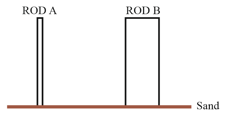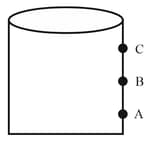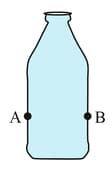Dr. K C Trikha and N K Sehgal Solutions for Chapter: Force and Pressure, Exercise 1: Something To Know
Dr. K C Trikha Science Solutions for Exercise - Dr. K C Trikha and N K Sehgal Solutions for Chapter: Force and Pressure, Exercise 1: Something To Know
Attempt the free practice questions on Chapter 4: Force and Pressure, Exercise 1: Something To Know with hints and solutions to strengthen your understanding. The Living World A book of Science and Technology solutions are prepared by Experienced Embibe Experts.
Questions from Dr. K C Trikha and N K Sehgal Solutions for Chapter: Force and Pressure, Exercise 1: Something To Know with Hints & Solutions
Give reasons for the following statements-
School bags are provided with wide straps to carry them.
Give reasons for the following statements- It is much easier to burst an inflated balloon with a needle than (directly) with the finger.
Give reasons for the following statements- Mountaineers may suffer from nose bleeding at high altitudes.
Give reasons for the following statements- Airplanes have pressurised cabins for passenger safety while flying high in the atmosphere.
Two rods, 'A' and 'B', of the same weight and equal length, have different thicknesses. A boy, while playing with them on a beach, held them vertically on the surface of the sand as shown in the figure. Which one of them will sink less? Explain.

Three holes, A, B and C, are made in an empty can at different levels, one over the other, as shown in the figure. They are (temporarily) closed with an adhesive tape. The can is now filled with water. What will you observe, when the tape (on all of them) is pulled out? Justify your answer.

Make two tiny holes, of the same size, at equal heights from the bottom in a plastic bottle. Cover them and fill the bottle with water. Let the 'covers' be now removed. State the 'observations', and the resulting 'conclusions', based on this activity.

Discuss, in brief, the variation in atmospheric pressure with altitude. Do changes in temperature also cause a change in atmospheric pressure?
